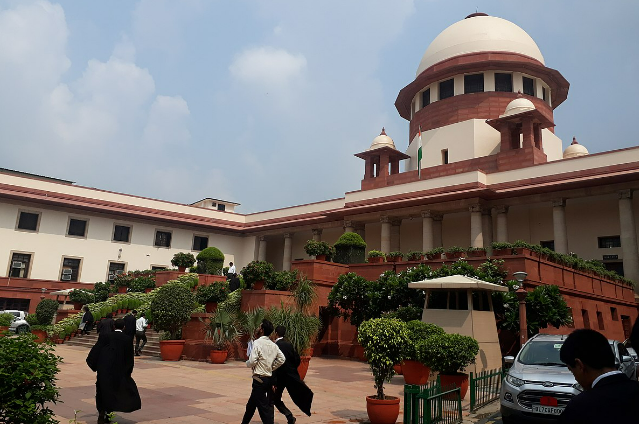The Supreme Court of India recognised sex work to be a 'profession'. Actually, the court was hearing a plea that has raised the problems faced by sex workers due to the Covid-19 pandemic. The plea has highlighted the destitution faced by the sex workers on account of Covid-19 and sought relief measures for over 9 lakh women and transgender sex workers across India.
Guidelines of the Verdict:
- Police forces in all States and Union Territories should treat sex workers with dignity and not to abuse them, verbally or physically.
- The authorities have a duty to protect them under the Immoral Traffic ( Prevention) Act, 1956.
- The police and other law enforcement agencies should be sensitised to the rights of sex workers.
- The newly introduced Section 354C, IPC which makes voyeurism a criminal offence, should be strictly enforced against electronic media, in order to prohibit telecasting photos of sex workers with their clients in the garb of capturing the rescue operation. Such a verdict was much essential as the attitude of the police to sex workers is often brutal and violent.
- State governments should do a survey of shelter homes so that cases of adult women who are detained against their will can be reviewed and processed for release in a time-bound manner.
- f) The Central Government and the State Governments, through National Legal Services Authority, State Legal Services Authority, and District Legal Services Authority, should carry out workshops for educating the sex workers about their rights.
- The Bench ordered that sex workers should not be 'arrested or penalised or harassed or victimised' whenever there is a raid on any brothel, 'since voluntary sex work is not illegal and only running the brothel is unlawful.'
- A child of a sex worker should not be separated from the mother merely on the ground that she is in the sex trade.
- Further, if a minor is found living in a brothel or with sex workers, it should not be presumed that the child was trafficked.
- Sex workers who are victims of sexual assault should be provided with every facility including immediate medico-legal care, a three-judge Bench directed in an order which was passed after invoking special powers under Article 142 of the Constitution.
Significance of the Verdict:
The court held that every individual in this country has a right to a dignified life under Article 21 of the Constitution.Challenges ahead:
- Sex workers are exposed to a lot of attacks ranging from physical to mental traumas.
- Most of them do not have an access to clean and safe housing, as they are refused outrightly by owners or the society.
- Access to essential health services is limited.
Other Relevant Court Judgements:
- In Kajal Mukesh Singh Vs State of Maharashtra ( 2021 ), the Bombay HC said, 'Prostitution is not an offence, a woman has a right to choose her vocation.'
- In Budhadev Karmaskar Vs State of West Bengal ( 2011 ), the HC observed that sex workers are also entitled to live a dignified life as guaranteed under Article 21 of the Constitution.
- In Manoj Shaw Vs State of West Bengal ( 2003 ), the Calcutta HC observed that sex workers should be treated as victims of crime rather than the accused.
- UN also runs a 'Blue Heart Campaign' which is a global awareness-raising initiative to fight human trafficking and it's impact on society. Blue Heart is increasingly recognised as the international symbol against human trafficking. It seeks to encourage involvement from governments, civil society, the corporate sector, and individuals alike, to inspire action and help prevent this heinous crime.
. . .
Discus

